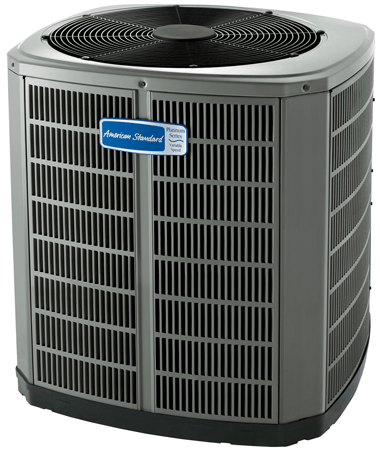To keep your home cool all summer long, upgrade to a brand new air conditioning system to not only stay comfortable, but also save money on your utility bills.
Summertime is finally here and so is the heat. You can’t control the weather outside your home, but inside you’re the one who gets to make all the decisions. So let’s make the right decision for the comfort of your family’s sake. A new air conditioning system will ensure that your home is perfectly cool on every summer day.
Many consumers are now choosing to switch to central air conditioning for this type of system’s efficiency, reliability, and the energy savings that come with making this sort of upgrade. In order to get a new AC system that is worth the money, make sure that you know the difference between the various types of air conditioners that are available on the market. Lucky for you, we’re here to tell you all about them.
Split Systems
Split air conditioning systems are the most common type of central air conditioning system. They use a large condenser outsider the home, and a fan and coil system located inside the home, which are connected by pipes carrying a refrigerant. In this type of system the air is circulated through ductwork. Not every home is able have the ductwork needed for a regular split system air conditioning system. For this reason there exists a different type of air conditioning system called the split ductless system. For homes which are unable to house a regular split system, split ductless systems are certainly a viable option since there is no ductwork required.
Split Ductless Systems
Split ductless air conditioning systems have an outside condenser and 1-4+ indoor blowers units, which are called air handlers. The outdoor and indoor compartments are connected by a thin channel which includes the power cable, condensate drain, and refrigerant tube. Each air handler cools the room in which it is located and the temperature can be adjusted via remote control. These types of systems are not considered to be air conditioning systems, but the cooling they provide is just like what would be provided by a traditional central air conditioning system.
Factors to Look at When Choosing Central Air Conditioning
Size
The size of an air conditioner is measured in either British thermal units per hour (BTU/hr) or “tons”. A ton of refrigeration is equivalent to 12,000 BTU/hr. To find more information regarding AC sizing, including a sizing guide, check out the Energy Star website.
Efficiency Level
An air conditioner’s efficiency level is calculated through the amount of cooling delivered by the unit for every watt of electricity used. This value is shown through a Seasonal Energy Efficiency Rating (SEER). When looking for a new central air conditioning system, look for one with a SEER rating of 15 or above. The higher the SEER rating, the more money you will save on wasted energy.
Programmable Thermostats
Having a programmable thermostat allows you to adjust the temperature of your home according to a series of programmed settings which can be spread out through different time of the day to your liking. If this useful device is used properly you can reduce your air conditioning cost by roughly ten percent.
Air Conditioner Maintenance
When choosing a new air conditioning system for your home look for one which includes a service plan that allows for regular inspection with discounts on any repairs, as well as a labour warranty. The prices for maintenance can greatly vary. When renting an air conditioner through DeMark Home Ontario, maintenance, repairs, and labour are included free of charge.
Easy Rentals...
Upgrading Your Existing Central Air Conditioning System
If your home already has a central AC system and you are looking to upgrade to a brand new one, do not make the assumption that you should buy a system of the same size as your current one. If there have been any changes made to your home, such as adding insulation, new windows, these will reduce the amount of cooling needed in your home. If you have added rooms to your home then your home will need more cooling.
In order to find out the air conditioner size needed for your home, have a contractor do a load calculation. This evaluation will also include whether or not your duct system needs to be resized, insulated and sealed, or replaced.
A new air conditioning system is 20 to 40 percent more efficient than minimum efficiency models made just ten years ago. This means that you could be saving substantial amounts of money on each utility bill.
Start your summer of on the right track by treating your home to a new central air conditioning system. If you have any further questions or concerns regarding central air conditioning or any of your other HVAC needs, don’t hesitate to contact DeMark Home Ontario today.
The highly trained and experienced technicians at DeMark Home Ontario are more than prepared to assist you with any of your air conditioner problems.
We also offer a variety of air conditioner purchasing, financing, and rental options if you are in need of a brand new high efficiency air conditioner replacement. We provide efficient and quick air conditioner replacement done by our team of HVAC professionals.
Give us a call at 647-847-2998 or fill out our online request form and we will be happy to assist you with your request.
Easy Rentals...
The post Air Conditioning Buying Guide appeared first on DeMark Home Ontario Furnaces, A/C, Water Heaters.

No comments:
Post a Comment